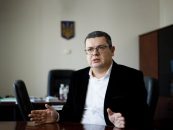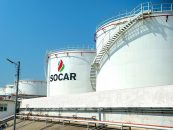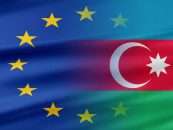
TANAP Will Provide Significant Contributes to The Region’s Energy Supply Security and Sustainability. In Addition, It is Highly Important for Azerbaijan to Reach to New Regions and Diversify Current Markets
An interview Mr. Mehmet UYSAL Chairman and President TPAO.
AT: Turkish Petroleum Corporation (TPAO) is the first Turkish company that started working in Azerbaijan. How did TPAO come to Azerbaijan?
After the dissolution of the Soviet Union, the Turkic Republics that we have historical, cultural, linguistic and religious unities gained independence. These countries opened their rich hydrocarbon sources to foreign investors and Western technologies to overcome financial bottlenecks.
In accordance with the Ankara Treaty signed between the Republic of Azerbaijan and the Turkic countries in the early 1992, TPAO decided to launch hydrocarbon exploration and production activities in Azerbaijan, known for a great potential for natural gas and petroleum, thanks to a favorable cooperation environment based on excellent cultural, historical and political relations with the country. Therefore, TPAO submitted a report to the former President of Turkey, Turgut ÖZAL, stating its willingness to operate hydrocarbon exploration and production activities in Azerbaijan. In the talks between the former President of Azerbaijan, Ebulfeyz ELÇİBEY, and the former President of Turkey, Turgut ÖZAL, in July 1992, it was declared that TPAO would participate in exploration and production activities in offshore and onshore fields in Azerbaijan. Following the negotiations between the authorities of TPAO and SOCAR, State Oil Company of Azerbaijan Republic, in 1992, two national oil companies signed a protocol to boost exploration and production activities by developing a direct cooperation in offshore and onshore fields or by getting into a partnership(s) with foreign corporations with which the Azeri government agreed. TPAO started running in Azerbaijan in this way.
AT: TPAO initially had a % 1,6stake in the Azeri-Chiraq-Gunashli deposit. Howewer, when Oil Company of Azerbaijan allocated %5 of its shares to increase TPAO’s stake. How did this affect the implementation of the further projects of TPAO in the Caspian?
TPAO purchased SOCAR’s stake of 5% in the Azeri-Chiraq-Gunashli project and increased its total share to 6.75%. This project has a vital importance to TPAO because it was the corporation’s first case in the Caspian Region. Throughout the project duration, TPAO obtained lots of experience about the region. In this process, the Azeri and Turkish governments, as well as, TPAO and SOCAR, established positive and constructive liaisons. These promising initiatives led TPAO to join new projects in the region just shortly afterwards. In fact, the Shah Sea Project, the Baku-Tbilisi-Ceyhan Main Export Crude Oil Pipeline (BTC) project and the South Caucasus Gas Pipeline (SCP) project were signed and put into practice in 1996, 2002 and 2003, respectively.
AT: In which projects in Azerbaijan has TPAO participated so far and how much has it grown?
The projects that TPAO undertakes in Azerbaijan and the latest updates on them are listed below:
Azeri-Chirag-Guneshli (ACG) Project: The weekly crude oil production at the ACG platforms is 687.710 barrels per day. The drilling of 9 wells are still being continued, 2 in Çıralı, 2 in the Western Azeri, 1 in the Central Azeri, 2 in the Eastern Azeri and 2 in Derin Su Guneshli, respectively. It is expected to start oil production in the fourth quarter of 2013 after the completion of manufacturing, constructing and assembling of the platform at the Chirag Petrol Project.
TPAO has a share of 6.75% in the ACG. The physical and cash budget planned for 2013 is 310.120.000 million USD.
Shah Sea Project:27.29 million Cubic meters gas per day and 54.870 barrel of condensate per day are produced at the Phase-1 with 5 oil production wells. It is planned to produce an aggregate of 8.6 billion cubic meters’ gas and 17 million barrel of condensate in 2013. Petroleum Pipeline Corporation (BOTAŞ) will continue gas sale to Azerbaijan and Georgia in 2013 within the scope of Phase-1.
TPAO has a share of 9% in the Shah Sea Project. The physical and cash budget planned for 2013 is 280.230.000 million USD.
Baku-Tbilisi-Ceyhan Main Export Crude Oil Pipeline Project: Variable amount of oil will continue to be carried commensurate with storage capacity Sangachal and Ceyhan terminals and production levels of ACG/SD projects. The routine transportation of ACG, Shah Sea, TengizChevroil and the third party petroleum will continue and the required modification and amelioration of pipelines and stations will be put into practice. The building of the MARPOL station at the Ceyhan Terminal will be started.
TPAO has a share of 6.53% in the Baku-Tbilisi-Ceyhan Project. The physical and cash budget planned for 2013 is 30.168.000 million USD and 100.000 USD, respectively.
South Caucasus Natural Gas Pipeline (SCP) Project: The operating activities and the transportation of gas produced within Shah Sea Exploration-1 to the delivery point in Azerbaijan, Georgia, Turkey and the BTC pumping plants will be continued in 2013. With the purpose of the transportation of gas within Shah Sea Exploration-2, the engineering activities will be funded by Shah Sea investors but the technical operations will be maintained under the Shah Sea Project.
TPAO has a share of 9% in the South Caucasus Natural Gas Pipeline Project. The physical and cash budget planned for 2013 is 5.664.000 million USD and 80.000 USD, respectively.
ALOV Project: TPAO is the main operator in the ALOV project with the physical and cash budget 100.000 USD. Due to the international status ambiguity of the Caspian Sea between Iran and Azerbaijan, the project is being carried out at the administrational level.
AT: TPAO is now actively participating in pipeline projects. It is also a member of the TANAP Project. What do you think about the commercial viability of the Project or to be more precise, about its timing?
A memorandum of understanding and intergovernmental agreement were signed on December 26, 2011 and June 26, 2012, respectively for TANAP, which will supply Turkey’s and Europe’s natural gas need with Azerbaijan Shah Deniz-2 and additional gas resources. This project will provide significant contributes to the region’s energy supply security and sustainability. In addition, it is highly important for Azerbaijan to reach to new regions and diversify current markets. The first flow of gas is planned to take place in 2018.The annual capacity will reach 16 billion m3 by 2020, and it’s aimed to increase it up to 23 billion m3/year by 2023, and to 31 by 2026.
Not only will TANAP make Turkey an energy-exporting country, but also it will contribute to the establishment of peace, reconciliation and stability, environment of confidence and good neighborhood relations in the strategically important region. Making Turkey a global actor in the energy field, the project will both strengthen the hand of Turkey in the EU accession negotiations and help the bloc achieve its goals on the improvement of competitive capacity of the EU countries, guarantee of power supply and sustainable development. The EU – Turkey’s energy roadmap was drawn at the quartette summit between Turkey and the European Union with the attendance of Mr. Egemen Bagish, the Minister for EU Affairs and Chief Negotiator, Mr. Taner Yildiz, the Minister of Energy and Natural Sources, Mr. Stefan Fule, the Commissioner responsible for enlargement and European neighborhood policy, and Mr. Gunther Oettinger, Commissioner for energy, in order to increase energy efficiency with new energy policies and vary source countries and routes. From this point of view, the timing of TANAP will not only consolidate Turkey’s position in the EU negotiation process but also it fortifies Turkey’s increasing political and economic power in the region through energy diplomacy.
AT: What can you tell our readers about the future activities of TPAO in the region?
Existing projects are underway in the Caspian Region. We would like to realize the new projects with Azerbaijan named Turkey’s brother and friendly country.
Azerbaijan Today Magazine, 2013





